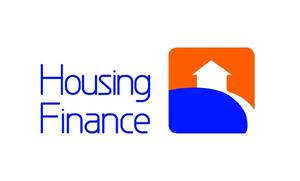Housing Finance has raised Kshs 7 billion against a target of Kshs 5 billion representing a 41 percent oversubscription in its recent bond issue.
Housing Finance, Managing Director, Mr. Frank Ireri, hailed the success of the bond, which he said demonstrates a robust local investor appetite for bonds and strong business fundamentals.
"The positive market reception to the bond offering clearly demonstrates increased local investor confidence in the long-term value proposition of Housing Finance,” said Mr. Ireri.
The bond issue was fully subscribed by local investors with Institutional investors taking up 98 percent of the issue and retail investors taking take up the rest.
The Medium Term Note matures in seven years with both a fixed rate and floating rate. Floating Rate bonds amounted to 20 percent of the subscription with the remaining 80 percent going to fixed rate subscribers.
The bond offer opened on 20th September and closed on 1st October. The money will be used for onward lending to clients and to increase Housing Finance participation in housing supply. Mr. Ireri said the Issuance of the bond also reflects Housing Finance’s desire to focus on long term funding solutions for the provision of affordable and adequate housing.
“Housing Finance is a capital intensive undertaking which is best financed through long-term credit financing,” said Mr. Ireri.
Our reason for being......
Mr. Ireri said there is a growing need for viable options for funding housing development, against the backdrop a growing demand for housing that surpasses supply. The housing demand continues to increase particularly in the urban areas. According to the Ministry of Housing, current demand is estimated at 150,000 units per annum with supply estimated at 35,000 units in urban areas in the country.
The MD said that there is a need to increase the variety of products available for investment in capital markets to meet existing appetites of investors and funding to the housing sector. For instance, corporate investors, developers and mortgage institutions can leverage funding through Real Estate Investment Trusts (REIT) schemes. REITs are entities that invest in different kinds of real estate or real estate related assets and mortgages secured by real estate.
“Real Estate Investment Trusts can speed up housing delivery and also open up opportunities for new estates and offices, and also return good value for all investors,” said Mr. Ireri.
Mr. Ireri said Housing Finance is well positioned to benefit from this growing demand for housing through provision of suitable housing financial solutions. Housing Finance stands to benefit once the Banking Act is amended to allow non-financial institutions to be deposit takers through agency banking as well as operation of current accounts by mortgage finance institutions.






